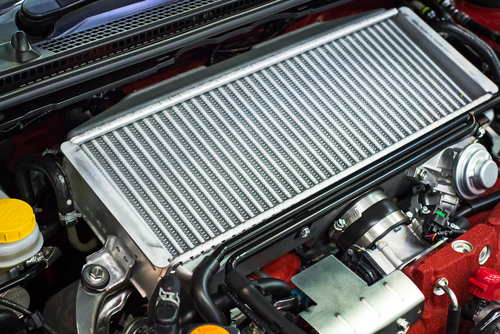The car radiator helps to keep your car’s engine at the right temperature and prevents this from overheating,or from causing a potential vehicle breakdown. As a result, keeping your radiator in good condition can help to prevent issues in the future. But how can the most common car radiator problems be avoided?
What are the most common radiator problems and how can these be avoided?
There are a number of problems that can cause havoc for your car radiator, but many of these issues can be avoided. So what are these problems and how can you reduce the risks? Well these problems include:
- Thermostat and pump issues
- Rust and corrosion
- Sludge and gunk
Avoiding thermostat and pump issues for car radiators
While the thermostat is not technically part of the car radiator this is part of the car heating system and this does control the flow of the coolant to the radiator. As a result, any issue with the thermostat can cause a problem for the car radiator, and for your vehicle in general, causing the car to overheat and potentially break down.
To prevent any issues with your car thermostat there are a number of things you can do. These include:
- Checking the coolant level and colour – if the coolant is a low level or discoloured this could be an early indicator of a problem with the heating system. If the coolant is brown or discoloured this could indicate rust in the system and this will need to be flushed out.
- Checking the radiator for rust- as well as checking the coolant for signs of rust you should also check the radiator itself. If you do identify any signs of rust, get your car booked in for a check over.
Avoiding rust and corrosion issues for car radiators
Rust and corrosion are some of the most common problems that car radiators face. Car radiators are very susceptible to corrosion and rust because of the constant exposure to moisture and oxygen, and rust in your car radiator can cause problems for your whole vehicle.
To avoid problems with rust from becoming extensive you should regularly check your car radiator for signs of rust and corrosion. If you can see rust on the outside of the radiator you can be sure that there is rust hidden on the inside as well. If you do identify any rust you should take your vehicle in for a check over with a professional team.
Avoiding sludge and gunk issues for car radiators
Sludge issues can be troublesome for any car radiator and this is mainly caused by mineral deposits building up over time. These deposits will thicken over time and can cause problems with the coolant flowing through the system properly. As a result, this is actually one of the most common causes of overheating car radiators.
To avoid sludge issues for your car radiator you should make sure that any overheating issues are checked out by a team of professionals and that the system is flushed when needed.
For more information or for professional car radiator repair, get in touch with the team today, here at MRS Heat Transfer.

